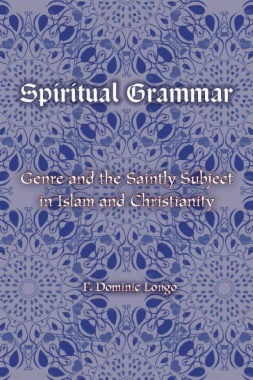Spiritual Grammar identifies a genre of religious literature that until now has not been recognized as such. In this surprising and theoretically nuanced study, F. Dominic Longo reveals how grammatical structures of language addressed in two medieval texts published nearly four centuries apart, from distinct religious traditions, offer a metaphor for how the self is embedded in spiritual reality. Reading The Grammar of Hearts (Nahw al-qulūb) by the great Sufi shaykh and Islamic scholar 'Abd al-Karīm al-Qushayrī (d. 1074) and Moralized Grammar (Donatus moralizatus) by Christian theologian Jean Gerson (d. 1429), Longo reveals how both authors use the rules of language and syntax to advance their pastoral goals. Indeed, grammar provides the two masters with a fresh way of explaining spiritual reality to their pupils and to discipline the souls of their readers in the hopes that their writings would make others adept in the grammar of the heart.
- Cover
- Contents
- List of Abbreviations
- Preface
- Introduction. Genre Trouble: Queering Grammar for Spiritual Purposes
- 1 Arabic, Latin, and the Discipline of Grammar in the Worlds of Qushayrī and Gerson
- 2 Genres and Genders of Gerson
- 3 Gerson’s “Moralized” Primer of Spiritual Grammar
- 4 From the Names of God to the Grammar of Hearts
- 5 Forming Spiritual Fu.a.a.: Qushayri’s Advanced Grammar of Hearts
- 6 The Fruits of Comparison: Constructing a Theology of Grammar
- Appendix. Translation of Jean Gerson’s Moralized Grammar
- Notes
- Index

